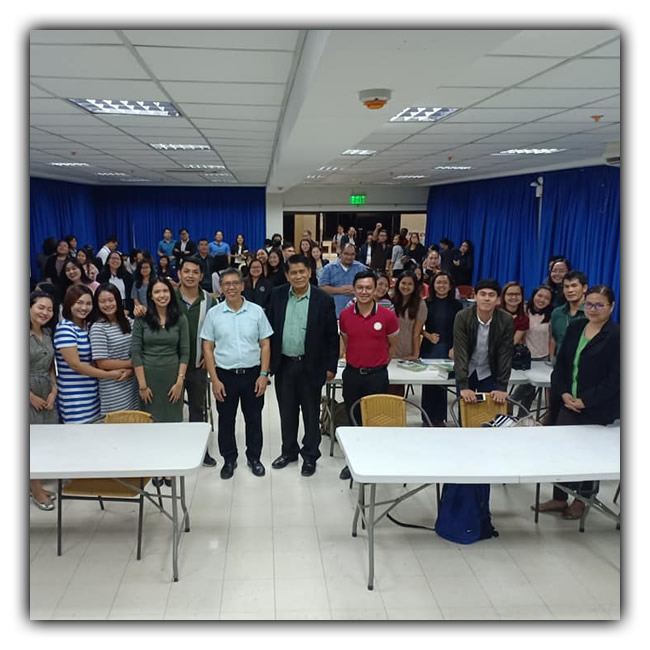By Keziah G. Huelar
Atty. Chel Diokno visited CPU on December 4, 2018 with the aim of empowering young leaders.
On December 4, 2018 at the Henry Luce III Library, Atty. Chel Diokno, the Chairperson of the Free Legal Assistance Group, held a forum on martial law and extra-judicial killings of human rights lawyers.
Atty. Diokno shared the experiences of his father, Sen. Jose W. Diokno, during the martial law era. He also discussed the role of the youth in influencing and advocating for social issues in order to promote equality and justice.
In another interview with the Centralian Link, Atty. Diokno shared the experiences that eventually molded him to advocate for social justice and youth empowerment.
According to Atty. Chel, he was 13 years old when he decided that he wanted to become a lawyer. With his father as his mentor, he developed a love for justice and equality: “When I was 13 years old, I already decided that I would become a lawyer. That was the time my father was released from detention and organized the Free Legal Assistance Group. I used to go with him to court. I’d bring his bags and his barong. I never got bored. I learned so much from watching my father and his colleagues in court.”
Talking about his childhood, Atty. Chel shared that his parents would always treat them like mature and independent individuals. He learned much of this trait when his father was incarcerated during the martial law era: “My parents always treated us like big people. That made it easier for us to understand what [was] happening.” He further explained that because of what happened during the martial law when his father was jailed, the whole family was affected and it made him and his siblings more determined to succeed.
Growing up with a prominent human rights lawyer, his father, Atty. Chel says that the greatest lessons he learned were to love serving people and to fight for social justice: “I learned so many lessons from my father. One of them is that the law should be for the people. Second, when we serve as lawyers, we really serve the people in ways that will help them become better—ways that will empower them. Rights are not given to us; they are fought for. We should always fight for our rights and not just for ourselves but for the rights of others. And third, we need to love our country, our fellowman, and the dignity of man.”
As for his advice to aspiring lawyers, Atty. Diokno encourages them to work hard and to develop their writing and speaking skills: “As lawyers, we only have two weapons—the written word and the spoken word. I would advise law students to do everything that they can to improve their writing and to improve their ability to speak in public because as lawyers, you will be called to either submit written arguments or to make oral arguments before the court, the boardroom and other places. If you are not good at speaking and writing, you will not do any good for your client. As a law student, even as a lawyer, you should never stop learning.”
As Atty. Diokno envision a country built on the foundations of human rights and social justice, he hopes that the youth will be empowered to advocate for causes that will greatly shape our nation: “I envision a just society for Filipinos. I envision a justice system that gives justice especially to the marginalized. I dream of a time where our children and future generations could live in a country where we can expect that our government officials [would] be held accountable if they commit something wrong and we [could expect them to] provide public service clearly without any sense or form of corruption.”

